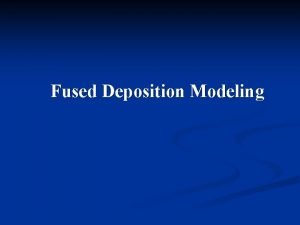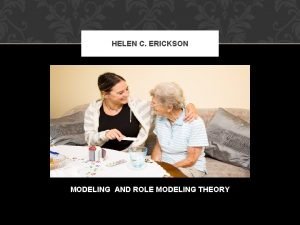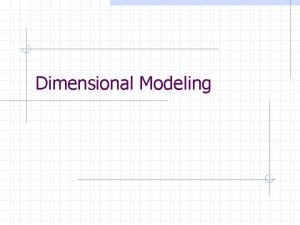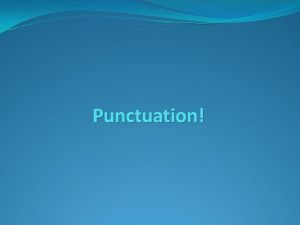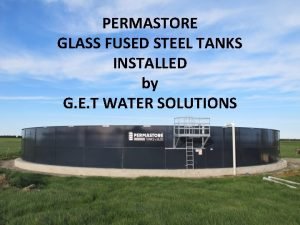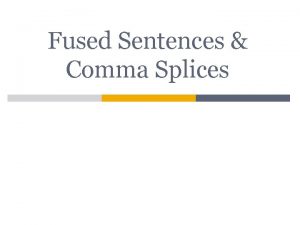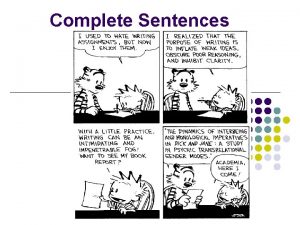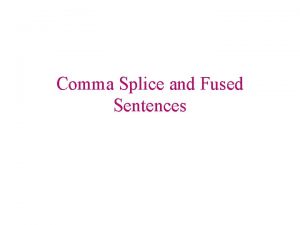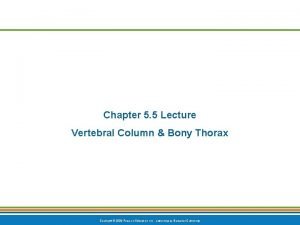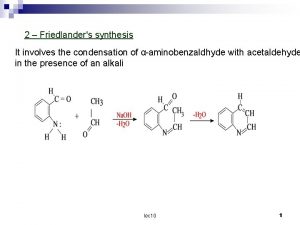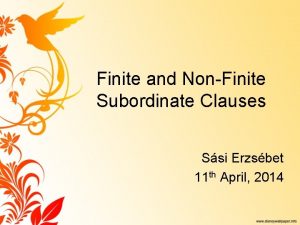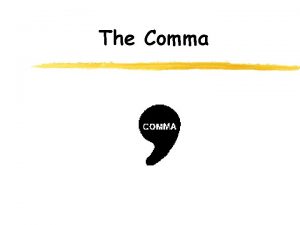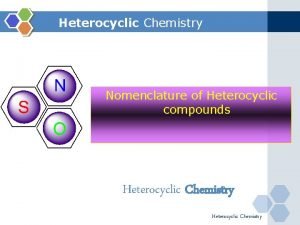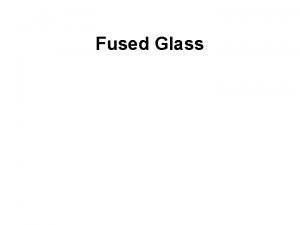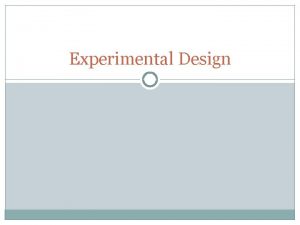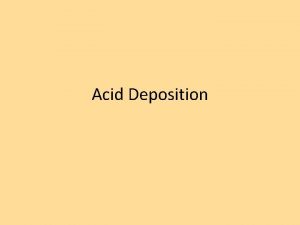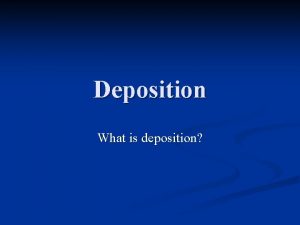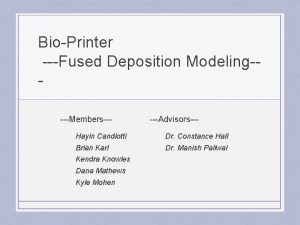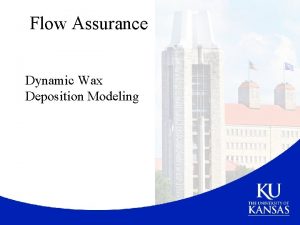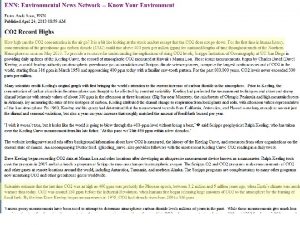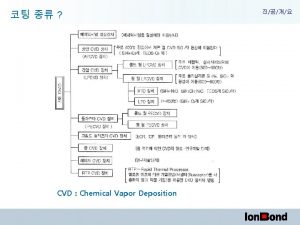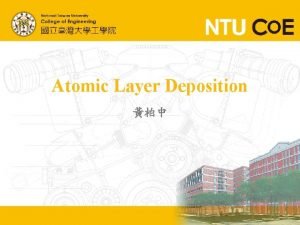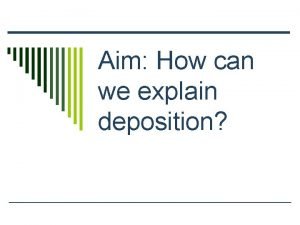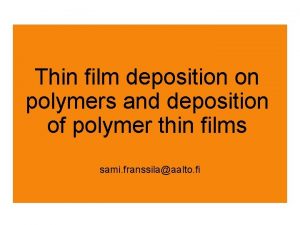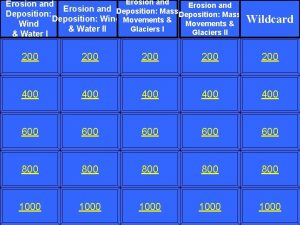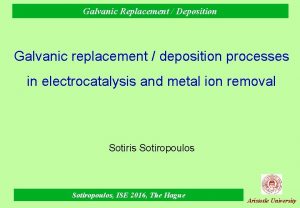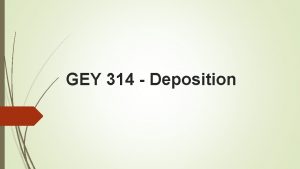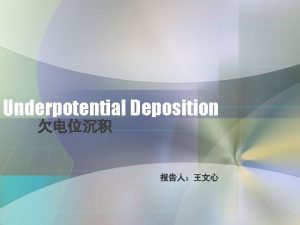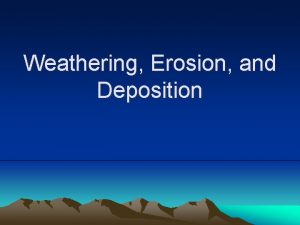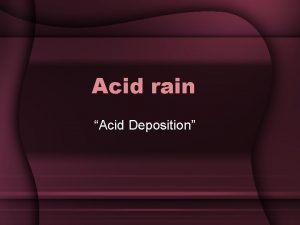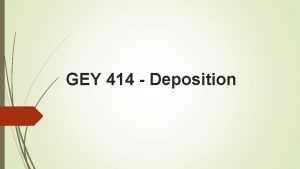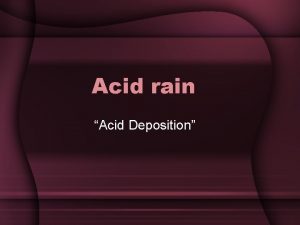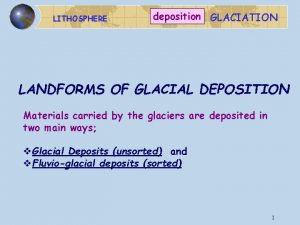Fused Deposition Modeling Definition n Fused Deposition Modeling





















- Slides: 21

Fused Deposition Modeling

Definition n Fused Deposition Modeling (FDM) is a extrusion-based rapid prototyping process, it has been used in conjunction with stereolithograghy and laser sintering.

History n FDM was developed by Stratasys, Inc. of Eden Prairie, MN in the early 1990’s. n It was created as a concept modeling device, but is now used more for creating casting masters and direct use prototyping.

History n FDM has evolved thru several models beginning with the original 3 -D modeler which was a floor unit. They have progressed thru various desktop units.

Specs The 1500 -2000 models are capable of building parts in the 10” x 10” range where as the 8000 and Quantum model can build 24” x 20” x 24” parts. n A newly released water soluble support material which allows for more complex geometry where complicated support structures can now be flushed away with a water based solution. n

Build Materials n n The FDM’s can be equipped to build with investment casting wax, acrylonitrile butadiene styrene (ABS) plastic, medical grade ABS thermoplastic, and or Elastomer. The build and support materials come in filament form, about 0. 070” in diameter, rolled on spools. The spools mount on a spindle in the rear of the machine, and the filament feeds thru a flexible tube attached to the back of the extrusion head. New technologies in the ceramics industry involve base material research.

More About the Filament n http: //www. emeraldinsight. com

More About the Filament n A new binder formulation for fused deposition of ceramics (FDC) has been developed. This material is formulated entirely from commercially available constituents, and performs well in FDC applications. In addition to adequate FDC properties, the binder shows good thermal decomposition behavior for binder removal. As a result, several complex PZT samples have been fabricated using FDC. This formulation shows promise for use in conjunction with FDC of functional piezoelectric ceramic transducers and actuators. Since the exact formulation is known, this material should be easily adaptable to other fillers such as stainless steel, aluminum oxide,

More About the Filament n The quality of the feed filament is one of the most important parameters for successful FDC. n The critical properties for high quality feed filaments include: o viscosity o strength o modulus

Extrusion Head The extrusion head is the key to FDM technology. It consists of: n Drive Wheels n Drive Blocks n Heating Chamber n Tips n Filament n

Extrusion Head www. csa. com

Click here to view FDM machines at the www. stratasys. com site.

FDM Operation Before building the STL file has to be converted into the machine language which is done by the Quick-Slice software. n The STL file is read into Quick-Slice and is displayed graphically on the screen in the Cartesian coordinate system. n This software allows you to choose slice layer thickness, the build and support materials, as well as the tip sizes. n Then the part must be scaled to fit the bounding box size, and oriented at the optimum build n

FDM Operation Once the part has been oriented and scaled, it must be sliced. n The slice range is from 0. 005” to 0. 015”. n The rest of the build parameters are default by the Quick-Slice software but can be changed manually. n

Typical Uses of FDM Parts n Concept/Design Visualization n Direct use components n Investment casting n Medical applications- results show that FDM allows the design and fabrication of highly reproducible bioresorbable 3 D scaffolds with a fully interconnected pore network. n Flexible components

Advantages n The strength and temperature capability of the build material. n Safe laser free operation. n Easy post processing with the new water soluble support material.

Disadvantages n. Slower than laser based systems n. Small features like a vertical thin column prove difficult to build with FDM.

Materials Research Ceramics are the newest thing in fully functional working products from a RP perspective. n Glass fibers were found to significantly improve the strength of an ABS filament at the expense of reduced flexibility and handleability. n The latter two properties of glass fiber reinforced ABS filaments were improved by adding a small amount of plasticizer and compatibilizer. n

Hospital Use n This new manufacturing device uses a photocurable monomer, hardened by a UVlaser. The spatial resolution of the system is about 0. 1 mm. 3 D-reconstructions were performed on a personal computer.

Future Applications Three-dimensional honeycomb, which were formed via the FD technique, showed excellent electromechanical properties for transducer applications. n Highly efficient ceramics for electrical transfer purposes n Accurate bio-safe replacement body parts for our troops and victims of senseless violence. n

References Rapid Prototyping Technology by Kenneth G. Cooper http: //www. mec. cf. ac. uk/services/? view=fdm&st yle=plain www. csa. com/partners/viewrecord www 3. interscience. wiley. com www. blackwell-synergy. com Journal of the American Ceramic Society www. emeraldinsight. com
 Fused deposition modeling history
Fused deposition modeling history Rein sentence
Rein sentence Fused sentence.
Fused sentence. Helen c. erickson nursing theory
Helen c. erickson nursing theory Relational vs dimensional data modeling
Relational vs dimensional data modeling Should i put a comma before as
Should i put a comma before as Permastore tanks and silos
Permastore tanks and silos Fused sentence.
Fused sentence. Is the furry kitten a complete sentence
Is the furry kitten a complete sentence Comma splices and fused sentences
Comma splices and fused sentences Fused curriculum
Fused curriculum How to know growth plates are closed
How to know growth plates are closed The nine vertebrae fused to form two composite bone.
The nine vertebrae fused to form two composite bone. Friedlander synthesis
Friedlander synthesis Finite subordinate clause
Finite subordinate clause Comma splices and fused sentences exercise 1 answers
Comma splices and fused sentences exercise 1 answers Comma splice error
Comma splice error What is a fused sentence
What is a fused sentence Heterocyclic compounds nomenclature
Heterocyclic compounds nomenclature Fused curriculum
Fused curriculum Can fused calcium chloride dry ammonia
Can fused calcium chloride dry ammonia Fused coronals
Fused coronals
